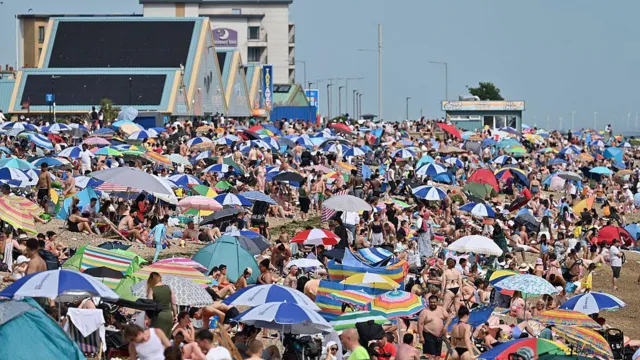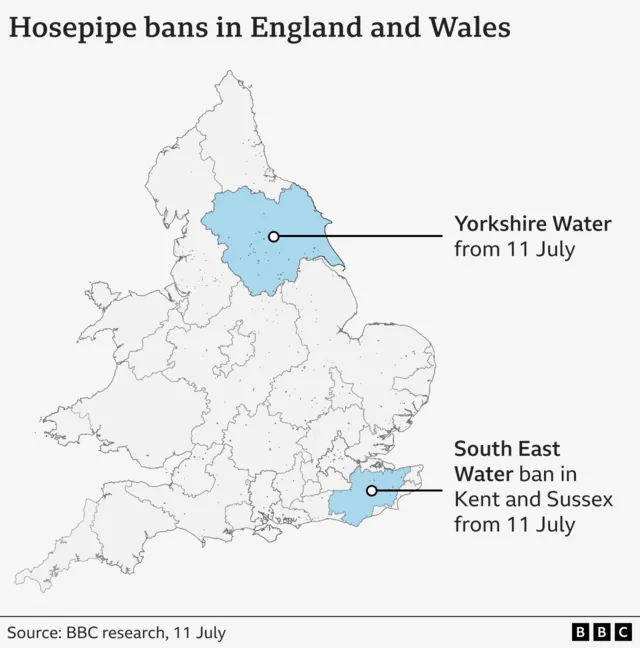UK Heatwave Intensifies: Amber Alerts Issued as Temperatures Soar and Water Restrictions Take Hold
The United Kingdom is currently experiencing its third heatwave of the summer, prompting significant health alerts and the implementation of widespread hosepipe bans. Temperatures have soared, reaching a high of 34.7°C in Astwood Bank, West Midlands, on Friday. This intense heat has led to the UK Health Security Agency upgrading heat health alerts to amber for Southern England, the Midlands, and the East of England, with yellow warnings remaining in place for Northern England. These alerts, which signify a risk to public health and potential disruption to essential services, will be in effect until Monday morning.
The persistent high temperatures have exacerbated dry conditions across the country, resulting in low water levels. Consequently, over seven million people in England are now subject to hosepipe bans. These restrictions typically limit activities such as watering gardens, washing vehicles, or filling swimming pools, with potential fines for non-compliance. The Environment Agency has officially declared a drought in North-West England and Yorkshire, a stark indicator of the severe impact of the prolonged dry spell. South East Water has also confirmed the imposition of water usage restrictions in Kent and Sussex, with ongoing monitoring in parts of Surrey, Hampshire, and Berkshire.

The effects of the heatwave extend beyond water usage, with health professionals issuing advice to mitigate risks. Dr. Lorna Powell, an NHS urgent care doctor, highlighted the particular vulnerability of individuals with pre-existing health conditions. She explained that extreme heat can place an additional burden on the body, potentially leading to a decompensation of chronic conditions such as heart problems, kidney issues, or diabetes. The NHS has provided comprehensive guidance for coping with hot weather, recommending staying indoors during the hottest parts of the day, seeking shade when outdoors, consuming cold food and drinks, wearing lightweight clothing, and ventilating homes by opening windows at night.
The extreme weather conditions are also heightening the risk of wildfires, particularly in Scotland and Northern Ireland. The Scottish Fire and Rescue Service has issued an extreme wildfire warning for central and eastern Scotland, which is set to expand to most areas of the country from Saturday to Monday. Authorities are urging the public to exercise extreme caution, advising against open flames, including disposable barbecues, and stressing the importance of proper waste disposal. In case of witnessing a wildfire, immediate reporting to emergency services is crucial.

The Met Office forecasts that while temperatures may remain in the high twenties and low thirties on Saturday, a cooler breeze is expected to set in by Sunday, offering some respite. However, the heatwave is anticipated to break for most of the UK on Monday as cooler Atlantic air arrives, bringing a chance of cloud cover and showers to northern and western regions. Scientists emphasize that the increasing frequency and intensity of such extreme weather events are consistent with predictions related to man-made climate change.
Public events are also taking precautions. Major festivals like TRNSMT in Glasgow and Wireless Festival in London have advised attendees to stay hydrated and use sun protection. Similarly, artists performing outdoor concerts, such as Oasis at Heaton Park in Manchester, have urged fans to prepare for extreme sun and heat conditions.



Post Comment